Do Banana Peels Really Work for Killing Aphids? Uncovering the Truth Behind This Garden Myth
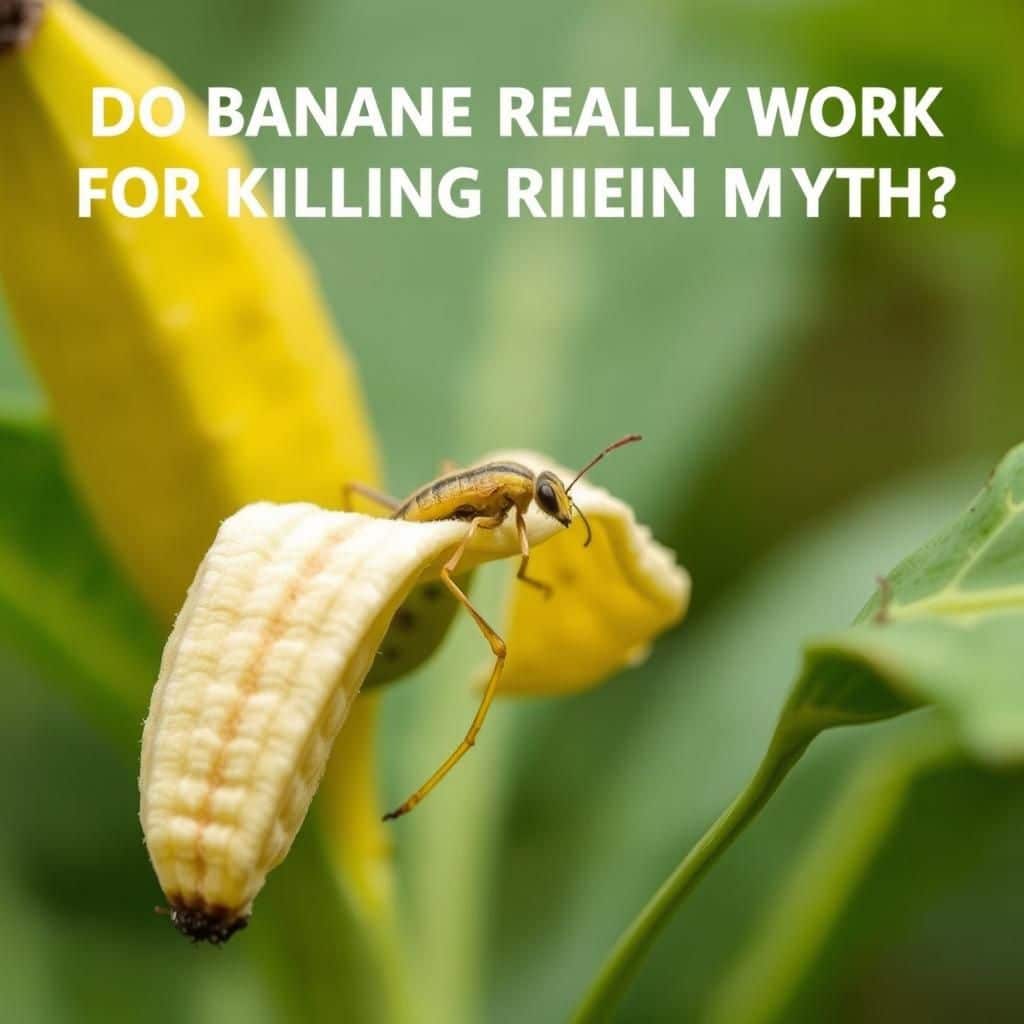
Aphids are notorious garden pests that can wreak havoc on plants, leading many gardeners to search for effective control methods. One popular myth suggests that banana peels can serve as a natural remedy for killing aphids. This intriguing idea has sparked both interest and skepticism in the gardening community, prompting questions about the actual effectiveness of banana peels in pest management. In this article, we will delve into the science behind this garden myth, exploring whether banana peels truly have the potential to combat aphids or if it's merely a tale passed down through gardening lore.
Do Banana Peels Really Work for Killing Aphids?
Banana peels are often touted as a natural pest control method, particularly for aphids, small sap-sucking insects that can harm plants. The idea is that the nutrients and compounds found in the peels can deter or kill these pests. While there is anecdotal evidence suggesting that banana peels can help in reducing the aphid population, scientific studies have not conclusively proven their effectiveness. The potassium and other minerals in banana peels may contribute to plant health, potentially making them less attractive to aphids, but more research is needed to understand if they can truly serve as a pesticide.
What Are Aphids?
Aphids are small, soft-bodied insects that feed on the sap of plants. They are known for their ability to reproduce quickly and can form large colonies on the undersides of leaves. There are various species of aphids, and they can cause significant damage to plants by causing leaf curling and transmitting plant viruses. Their presence can lead to weakened plants and reduced yields, making them a common pest in both gardens and agricultural settings.
Benefits of Using Banana Peels
Using banana peels in the garden can have several benefits. The peels are rich in nutrients such as potassium, calcium, and magnesium, which are critical for plant growth. Incorporating banana peels into the soil can improve soil fertility and support healthy plant development. Furthermore, as a natural byproduct, banana peels are environmentally friendly and reduce waste, presenting a sustainable alternative to chemical pesticides.
How to Use Banana Peels for Aphid Control
To utilize banana peels for potential aphid control, gardeners can chop the peels and bury them in the soil around the base of affected plants. This method allows the nutrients to be released gradually as the peels decompose, enhancing the health of the plants. Another approach is to steep the peels in water for a few days, creating a nutrient-rich tea that can be sprayed directly onto the plants. This application may help strengthen the plants and indirectly repel aphids through improved vigor.
Limitations of Banana Peel Efficacy
While banana peels may offer some benefits, they also have limitations. There is little scientific evidence directly supporting their effectiveness in killing aphids. Other pests may remain unaffected, and the use of banana peels should not replace conventional pest management practices where severe infestations occur. Additionally, decomposing banana peels can attract other pests, including rodents and fruit flies, potentially leading to more complications in the garden.
Alternative Natural Pest Control Methods
Apart from banana peels, there are several alternative natural pest control methods available for managing aphids. Neem oil, insecticidal soap, and a mixture of soapy water can effectively kill aphids while remaining safe for beneficial insects. Introducing natural predators like ladybugs or lacewings can also help control aphid populations. Crop rotation and companion planting are additional strategies that can reduce aphid infestations while promoting overall garden health.
| Method | Effectiveness |
|---|---|
| Banana Peels | Moderate |
| Neem Oil | High |
| Insecticidal Soap | High |
| Soapy Water | Moderate |
| Companion Planting | Variable |
Do bananas really repel aphids?
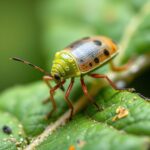
A common belief among gardeners is that bananas can help in repelling aphids, small sap-sucking insects that can damage plants. Bananas contain various compounds, including volatile compounds and essential oils, which may have repellent properties against certain pests. The peel, in particular, is often used in these discussions as it is rich in potassium and other nutrients. However, scientific evidence supporting the effectiveness of bananas specifically against aphids is largely anecdotal.
Understanding Aphids
Aphids are small, soft-bodied insects belonging to the family Aphididae. They are known for their ability to reproduce rapidly and can often be found in large colonies on the undersides of leaves. Their feeding can lead to:
- Yellowing and deformation of leaves.
- Stunted growth in plants.
- Transmission of plant viruses.
Ingredients in Bananas
Bananas contain various ingredients that some believe may repel pests, including:
- Potassium: An essential nutrient for plant health but not necessarily a deterrent for aphids.
- Volatile compounds: These may have insect-repelling properties, although the specific effect against aphids isn’t well-documented.
- Essential oils: Found in many plants, these oils can sometimes act as deterrents for some insects.
Research on Plants and Repellents
Some studies suggest that certain compounds can deter pests. However, research directly linking banana use and aphid repellent effectiveness is limited. Research findings include:
- Essential oils like peppermint and neem have been found effective against aphids.
- Natural predators of aphids, such as ladybugs, can be more effective than using plant-based repellents.
- Environmental factors like temperature and humidity can also influence aphid populations.
Alternative Methods for Aphid Control
Instead of relying on bananas, several other methods can be considered to control aphids effectively. These include:
- Spraying plants with water to dislodge aphids.
- Utilizing natural predators like ladybugs and lacewings.
- Applying insecticidal soap to directly target aphids while being safe for plants.
Using Bananas in Gardens
While bananas may not be a direct solution for repelling aphids, they can still be beneficial in gardening practices, such as:
- Using banana peels as a compost additive to enhance soil nutrients.
- Employing banana peels around plants to attract beneficial insects.
- Creating a home-made fertilizer that includes banana peels for overall plant health.
What is the most effective aphid killer?
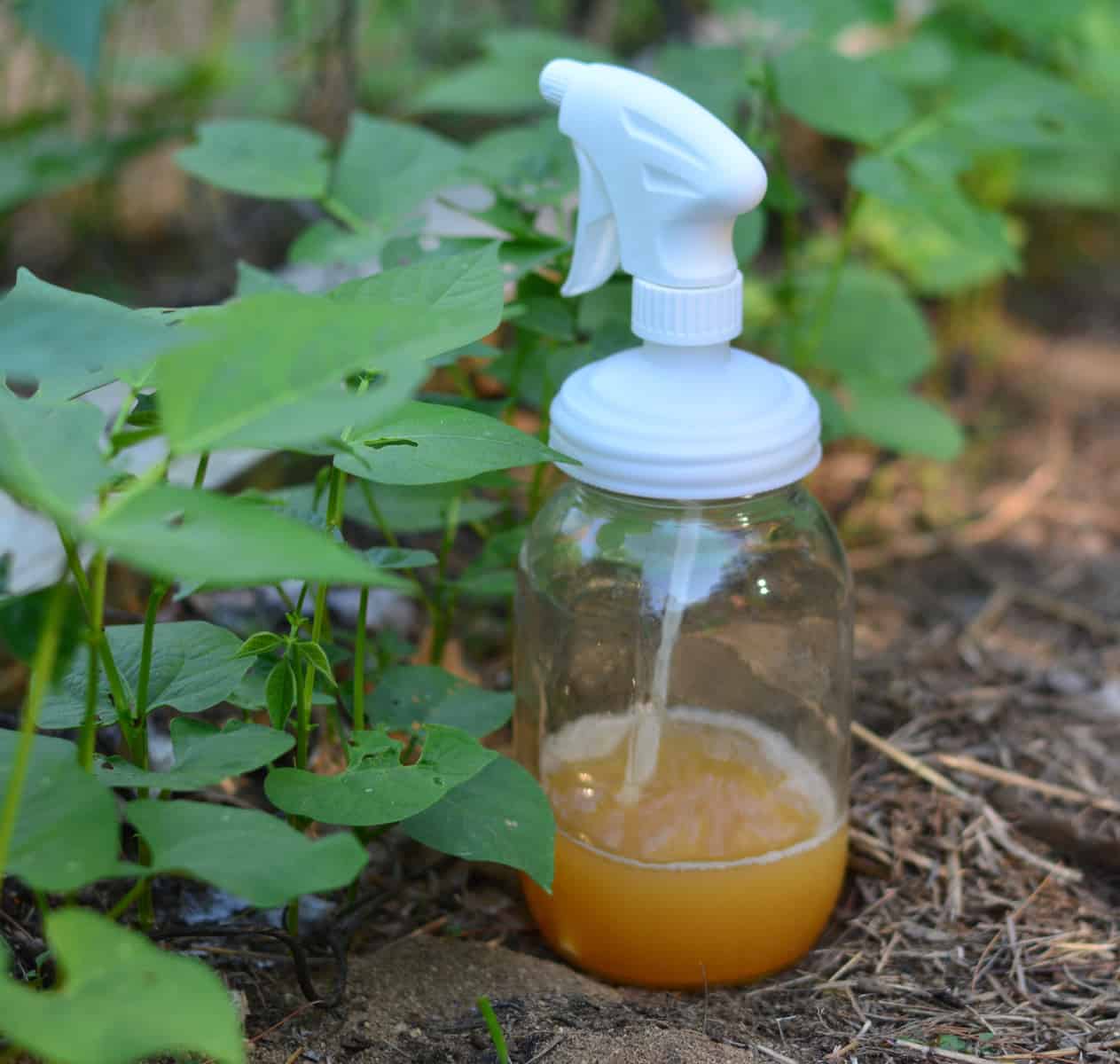
The most effective aphid killer can vary based on your needs, methods of application, and whether you prefer chemical or natural solutions. However, one of the most recommended approaches is the use of insecticidal soaps. These soaps work by suffocating aphids rather than using toxic chemicals, making them safer for beneficial insects and the environment.
See also: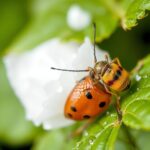
Key characteristics of insecticidal soaps include:
- Effectiveness: Targets soft-bodied pests like aphids effectively.
- Safety: Non-toxic to pets and humans.
- Easy to use: Can be sprayed directly on affected plants.
Chemical Insecticides
Chemical insecticides are often potent against aphid infestations, providing quick results. Common active ingredients include pyrethroids and neonicotinoids. When using these products, it’s crucial to follow the manufacturer's instructions carefully and consider the timing of application to minimize harm to beneficial insects.
- Pyrethroids: Quick-acting chemicals that disrupt the nervous system of aphids.
- Neonicotinoids: Systemic insecticides that are absorbed by plants and can kill aphids when they feed on sap.
- Application Timing: Apply in the early morning or late evening to reduce the impact on pollinators.
Natural Remedies
Natural remedies can be a safe and eco-friendly alternative to traditional insecticides. Neem oil and diatomaceous earth are popular choices to control aphid populations. Neem oil disrupts aphid life cycles, while diatomaceous earth acts as a desiccant, dehydrating these pests.
- Neem Oil: A natural pesticide that interferes with the aphid's reproductive system.
- Diatomaceous Earth: A non-toxic powder that causes abrasion and dehydration in aphids.
- Regular Application: Consistency is key; repeat treatments may be necessary for effective control.
Companion Planting
Utilizing companion planting techniques is a sustainable way to manage aphid populations. By planting certain flowers and herbs that attract beneficial insects like ladybugs and lacewings, you can create a natural predator-prey relationship that minimizes aphid numbers.
- Marigolds: Attract natural aphid predators and repel harmful pests.
- Chives: Their strong scent can deter aphids from nearby plants.
- Fennel: Attracts beneficial insects that feed on aphids.
Physical Removal
For small infestations, physical removal of aphids can be effective. Using a strong stream of water from a hose or wiping them off by hand can reduce their numbers significantly. This method is particularly useful for gardeners who prefer not to use any chemicals.
- Water Spray: Knock aphids off with a strong spray to reduce their populations.
- Hand Removal: Manually wipe off aphids when dealing with small plants.
- Frequent Monitoring: Check plants regularly to catch infestations early.
Encouraging Beneficial Insects
Enhancing your garden environment can encourage beneficial insects that prey on aphids. Ladybugs, lacewings, and parasitic wasps are natural enemies of aphids and can help keep their numbers in check without the need for pesticides.
- Ladybugs: These voracious eaters can consume thousands of aphids in their lifetime.
- Lacewings: Larvae of lacewings are known as aphid lions due to their appetite for aphids.
- Parasitic Wasps: They lay eggs inside aphid bodies, leading to the natural control of the pest population.
Questions from Our Readers
Do banana peels really work for killing aphids?
Yes, banana peels can help deter aphids due to their rich content of nutrients and natural pesticides. While they may not directly kill aphids, they can enhance the health of plants that might repel these pests or attract beneficial insects that prey on aphids.
How do you use banana peels to control aphids?
To use banana peels for controlling aphids, simply cut them into small pieces and bury them in the soil around your plants. This not only adds nutrients to the soil but may also encourage beneficial organisms, creating an environment less favorable for aphids.
See also: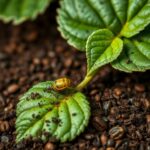
Are there any other benefits of using banana peels in the garden?
Yes, in addition to helping with aphids, banana peels are rich in potassium, phosphorus, and calcium, essential for healthy plant growth. They can improve soil fertility, promote root growth, and even attract pollinators and other beneficial insects to your garden.
Can banana peels attract other pests instead of repelling them?
While banana peels may attract some pests due to their sugar content, they are generally more beneficial for plants than harmful. However, it’s important to monitor your garden closely, as the sweetness can sometimes lure undesirable insects, so balance their use with other pest control measures.

If you want to read more articles like Do Banana Peels Really Work for Killing Aphids? Uncovering the Truth Behind This Garden Myth, we recommend you check out our Insects category.
Leave a Reply

Related Articles